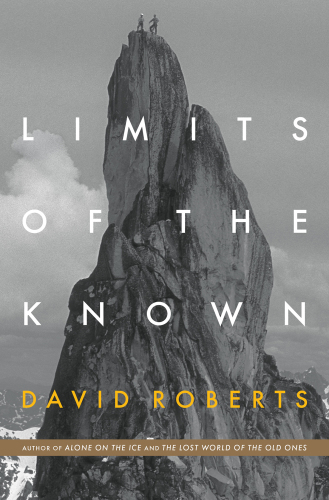
Limits of the Known
کتاب های مرتبط
- اطلاعات
- نقد و بررسی
- دیدگاه کاربران
نقد و بررسی

November 13, 2017
Roberts, an adventurer and author of nearly 30 books (Alone on the Ice, etc.), movingly reflects on his life prior to undergoing throat-cancer treatment that made physical exertion nearly impossible for him. The diagnosis led him to consider the meaning of his own adventures and those of other explorers, such as Sherpa mountaineer Tenzing Norgay and British Arctic explorer Henry Worsley. Interspersed with these vivid retellings of other’s adventures are reminiscences about Roberts’s own outdoor pursuits, many of which were life-or-death undertakings. Roberts’s initial revelation while undergoing chemotheraphy was that when he looked at explorers, he saw “little point... in trying to unearth an overarching purpose in our madness,” yet he eventually surmises that his love for adventure was “encoded” in his DNA; he felt an inherent need for the knowledge and companionship that dangerous situations require. Roberts also reflects on life’s bittersweet joys, such as when he looks at a recent photo, taken with his wife on a short hike, that captures “my emaciated feebleness but also the happiness of that day.” Roberts conveys the exhilaration and vitality of adventuring as well as the agony and anger of a cancer diagnosis with equal aplomb, making for a moving narrative that speaks to the glories of the human spirit and the limitations of the human body.

December 1, 2017
Roberts (Alone on the Ice) is a widely published mountaineer and explorer with more than 25 books and numerous articles written on the subject. With the news of his recent cancer diagnosis, he sets out to answer questions surrounding his professional life choices. Why have I devoted my life to exploration? Have I contributed anything to this world? To help him come to terms with his life choices and answer these questions, Roberts considers the stories and motives behind several expeditions, explorers, and extraordinary feats throughout history. What follows is a recounting of an attempt to reach the North Pole when many were competing to get there first, a traverse of the globe's last undocumented terrain in the mountains of Pakistan, an examination of the remarkable climbing skills the Anasazi displayed in their daily lives, and first expeditions by raft down treacherous rivers in New Guinea and Ethiopia, among others. Roberts' preference for a traditional and purist approach to exploration might be off-putting to some, as he often shows disdain for technology-guided and media-documented projects, but his engrossing writing and gripping adventure stories will appeal to outdoors and history enthusiasts. VERDICT Highly recommended, especially for those who enjoyed Jon Krakauer's Eiger Dreams.--David Miller, Farmville P.L., NC
Copyright 2017 Library Journal, LLC Used with permission.

December 1, 2017
Veteran mountaineer and historian Roberts (The Lost World of the Old Ones: Discoveries in the Ancient Southwest, 2015, etc.) looks once more at the question of why humans are so bent on scaling the world's tall places.Climbers have worried that the planet's peaks are getting overcrowded ever since Petrarch ascended Mont Ventoux, and indeed readers could be forgiven for thinking that Roberts was among the last to live in the golden age of adventure and exploration. Take, for example, his first contact with a people hidden away in the depths of an island rainforest: "I had never been part of such a strange cultural interchange, and I covertly stared back, wondering, What are they thinking? Who do they think we are? Why do they think we've come?" Good questions all. In the main, this is an amiable if surely adventure-packed collection of yarns and historical oddments; who knew that one of the first organized mountaineering expeditions in the world involved a theologian, a carpenter, and the "official ladderman to the king"? Roberts is as home in libraries as he is on summits, and he explores the literature of mountaineering and some of its genre conventions, if not cliches: the use, for example, of "martial metaphors on every page supported a narrative that veered closer to melodrama than to understatement." So it is with the books that mark a true golden age, that of Himalayan mountaineering, which Roberts closes off at 1964, books that center on a pair of daring climbers while scarcely acknowledging the vast support staff behind them. The author is more generous in writing of the great teams that figure in any expedition, and, he notes, expeditions are continuing, now with young climbers who appreciate their predecessors: "I no longer worry that the skills and technology of the current band of alpinists relegate the deeds of my own generation to the limbo of 'pretty good for its time, ' " he writes.Roberts ponders his mortality while celebrating the freedom of wild places. A book for anyone who appreciates good adventure writing.
COPYRIGHT(2017) Kirkus Reviews, ALL RIGHTS RESERVED.

























دیدگاه کاربران